Not business as usual: What are companies doing to prepare for future pandemics?
How should businesses protect their bottom line while prioritising employees’ safety and health? And in the event of a second or third wave of infections, what can they do to keep their heads above water?
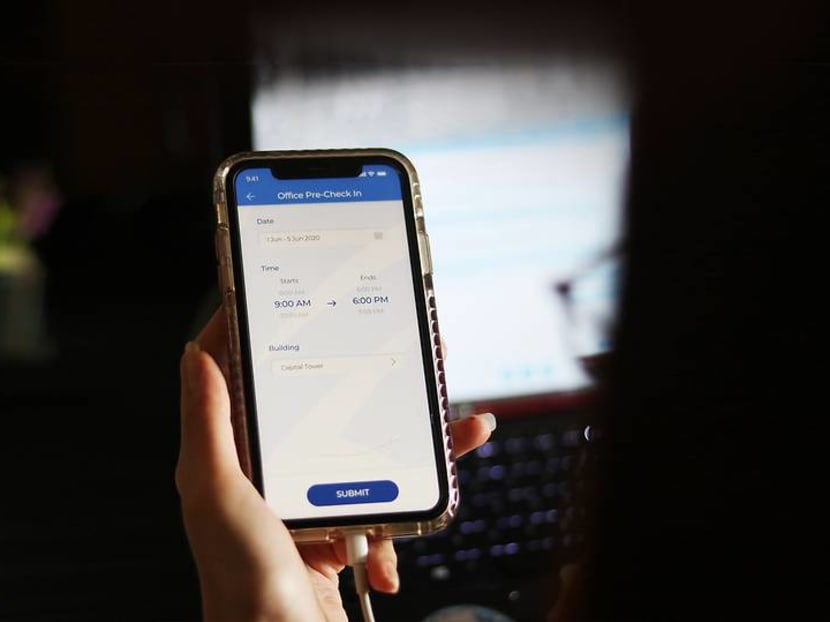
Prior to entering their offices, CapitaLand's employees use the CapitaStar@Work platform to perform a pre-check-in. (Photo: CapitaLand)
With virtually every aspect of life thrown off-kilter since the pandemic started, Manohar Khiatani, senior executive director of CapitaLand Group, is not exaggerating when he said that COVID-19 the “crisis of our generation”.
Since the novel coronavirus struck early this year, it has affected more than 20 million people worldwide. In Singapore, the number of confirmed cases has gone beyond the 55,000-mark.
Experts say the world is heading towards one of its worst greatest economic crises since the Great Depression of the 1930s.
Wading through uncharted waters, large organisations and smaller enterprises alike are now faced with pressing questions: How to protect their bottom line while prioritising employees’ safety and health amid a time of uncertainty?
And in the event of a second or third wave of infections, what can they do to keep their heads above water?
While pandemic preparedness plans are not new, Dr Low Kiang Wei, medical director for International SOS, said COVID-19 has highlighted the need for organisations to have robust pandemic planning and strategies in place as a key part of business resilience.
“It has also raised duty of care responsibilities in these circumstances. In many countries, it is becoming evident that organisations will be held legally responsible if they do not protect their people well enough in the face of the pandemic,” Dr Low said.
The global medical and security risk management company, which counts Fortune Global 500 companies and multinational corporations as clients, takes over 11,000 calls a day at its assistance centres.
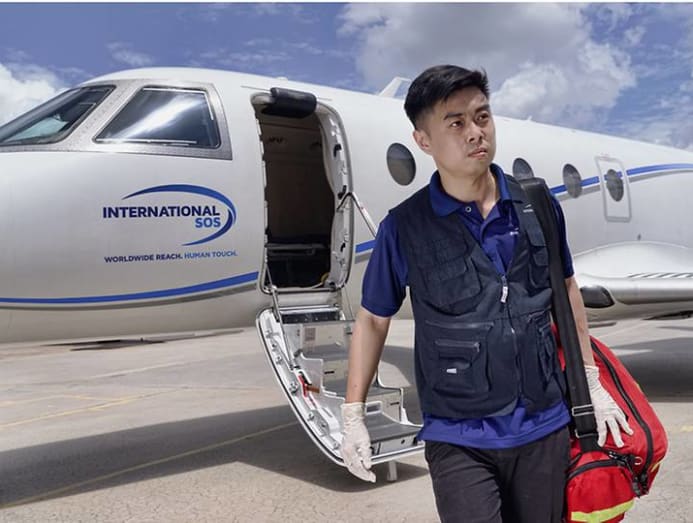
READ> Who is the Singaporean doctor helping businesses navigate the pandemic?
PREPARING FOR THE WORST-CASE SCENARIO
A pandemic preparedness plan is a series of measures to minimise disruption to business and protect employees’ health and safety while tackling specific challenges. For example, it may include engaging a pandemic coordinator, telecommuting, providing employees with access to support as well as safe return-to-work policies and processes.
In a recent global survey conducted by International SOS, over 70 per cent of companies indicated that their primary concern regarding business continuity is further disruption from a potential second wave of infections.
The Return to Work survey, which was conducted from May 11 to 25 this year, analysed responses from over 1,000 professionals responsible for supporting the health, safety, security and wellbeing of employees.
“In many countries, it is becoming evident that organisations will be held legally responsible if they do not protect their people well enough in the face of the pandemic.” – Dr Low Kiang Wei
While there is a keen focus on measures that enable a return to work, over a fifth (21 per cent) of the respondents said they do not have a pandemic plan and process in place.
Meanwhile, of the organisations who had a pre-existing pandemic plan in place, two thirds (65 per cent) felt that their plans and processes were effective in cushioning the impact of COVID-19.
Dr Low said, “This shows that businesses and more importantly, their employees, can benefit from pandemic preparedness plans and be more resilient to cope with the longstanding effects of the pandemic.”
HOW SINGAPORE COMPANIES PREPARED FOR AND RESPONDED TO COVID-19
CapitaLand, which engaged International SOS as one of its health and security partners, is among the organisations that had already geared up before the pandemic started.
It has in place business continuity plans to enable it to respond to crisis situations and continue operations with minimum disruptions during extraordinary times, said Khiatani, who is also appointed the Group’s business continuity planning commander.
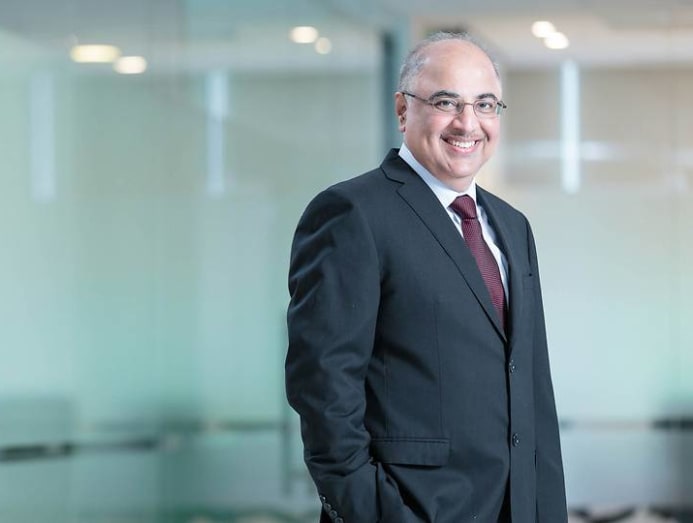
Plans include elements such as stockpiling of essential equipment, identifying critical business functions, essential employees, split-team arrangements, as well as periodic crisis management simulation exercises to ensure a state of readiness among staff.
Khiatani shared that when COVID-19 became an apparent threat earlier this year, the group set up a special task force, led by two senior leaders, to monitor and decide on necessary responses across the group.
“Being a leading real estate company with a wide global footprint, we recognised the importance of having proper business continuity plans given our experience with past crisis such as SARS and other threats. This mindset and preparedness served us well when COVID-19 struck and we were able to respond effectively to the rapidly evolving situation,” he said.
For example, CapitaLand’s employees easily switched to telecommuting earlier this year.
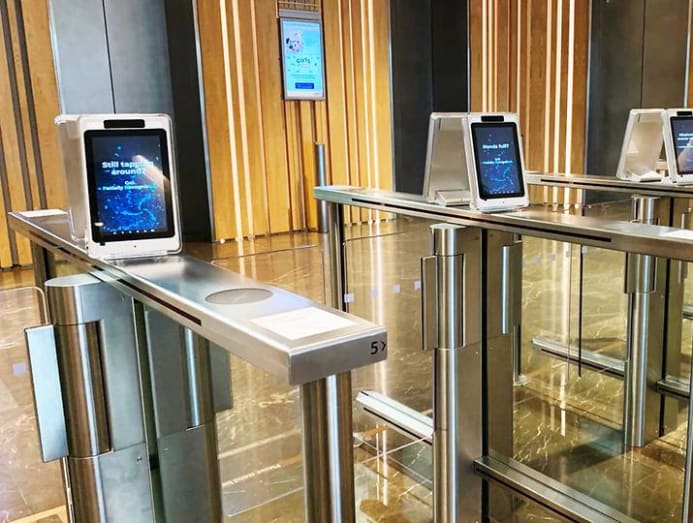
“When we moved to telecommuting, CapitaLand’s digital work culture that we have built over the years helped employees stay connected and seamlessly adjust to work from home,” Khiatani said.
For now, working from home remains the default option for its non-essential staff in Singapore, in line with national guidelines, Khiatani said. For those who need to return to the office, there are also measures in place to ensure a safe environment, such as split team arrangements, staggered work hours, temperature-taking, tracing apps, and deployment of safety officers, among others.
“Being a leading real estate company with a wide global footprint, we recognised the importance of having proper business continuity plans given our experience with past crisis such as SARS and other threats.” – Manohar Khiatani
CUSHIONING THE IMPACT WITH LESSONS LEARNT FROM PREVIOUS OUTBREAKS
Other businesses that CNA Luxury approached said lessons gleaned from previous outbreaks have shaped their response to the current crisis.
Like many other businesses, the global crisis forced the COMO Group, which offers bespoke luxury travel experiences, to close the majority of its hotels and resorts around the world, in line with local government guidelines.
However, having substantial crisis management plans in place, a flexible approach and understanding of various government guidelines in the markets it operates in have helped buffer the impact of COVID-19, said Olivier Jolivet, CEO of COMO Group.
“[Having crisis management plans in place] helped mitigate the financial impact since nothing came to us as a surprise and we remained calm and very organised,” said Jolivet, adding that it is on track to reopen its properties.
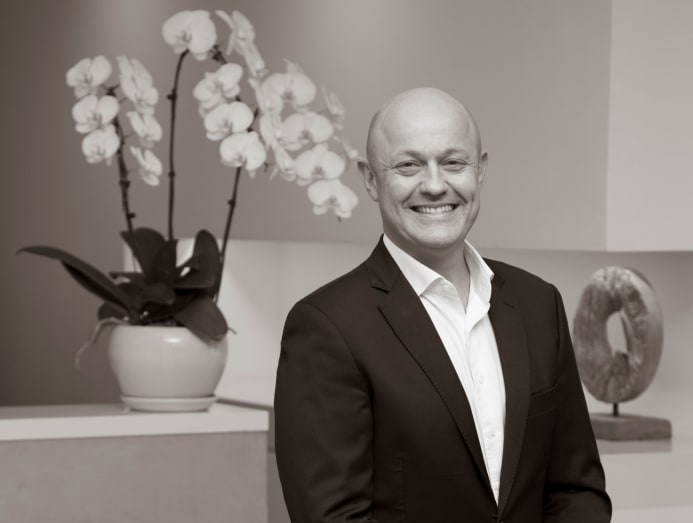
Dr Karen Soh, medical director of Prive Clinic, a medical aesthetics clinic, said while no one could have anticipated COVID-19, the SARS outbreak in 2003 highlighted the importance of being prepared.
For example, the clinic’s ground staff are familiar with safety and sanitisation protocols while patients unable to get their aesthetic needs met due to travel restrictions have the option of a 24-hour hotline and online consultation service.
When the clinic temporarily halted operations during Singapore’s circuit breaker period, Prive Clinic launched a new e-commerce platform offering free delivery for its skincare products and supplements.
“We have always emphasised knowledge and expertise of our staff, hence they were sent for virtual training and refresher courses to maintain some normalcy,” Dr Soh said.
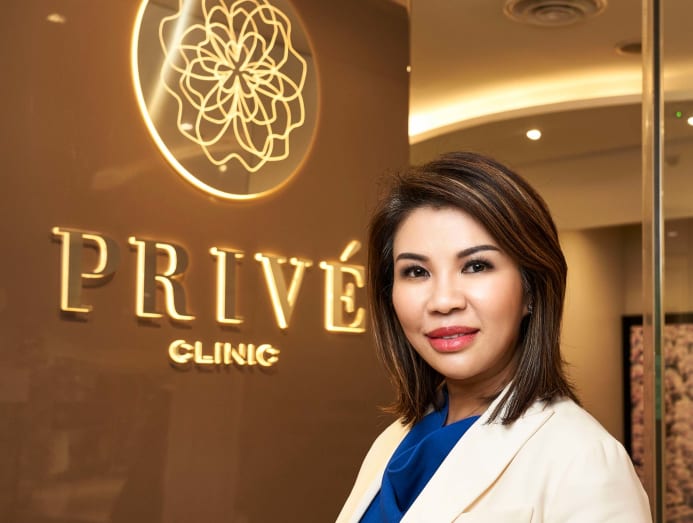
As the workforce continues to face uncertainty, Dr Low said mental well-being is now more important than ever in business resilience, and advised companies to build a culture where employees feel that their well-being is a key priority.
In the same International SOS’ survey, mental health issues remained top of mind for Singapore respondents, with one in five concerned about the impact of mental health issues on their business operations in the next 12 months.
Khiatani said feelings of anxiety and uncertainty are natural during this unprecedented period, which is why good communication, staying connected and maintaining a sense of solidarity with staff are important.
CapitaLand does this through several ways, such as virtual staff communication sessions with the Group CEO and senior management, providing tips on the use of digital tools to support employees working from home and running online courses to help employees upgrade their skillsets.
The group also has an employee assistance programme, which helps employees who need financial assistance tide over a personal situation and provide professional counselling support, Khiatani said.
Jolivet said employees are COMO Group’s most important asset.
“We’re making every effort to support them and their families wherever they are. In Bhutan, although the country will probably remain closed till the end of the year, we are keeping all employees on board and let them work on sustainability initiatives in the interim,” he said.
To minimise employee anxiety from fear or lack of information, Dr Low advised organisations to provide staff with timely access to succinct intelligence on the evolving COVID-19 situation and health safety recommendations.
They can also look into programmes and leverage on digital tools to provide staff with access to mental health support, such as through International SOS’s counselling support hotline, he said.
“Employers should also continually check in on employees to show appreciation, emphasise work-life boundaries, respect work schedules and educate employees on how to make their time spent at home more productive,” Dr Low added.
“Employers should also continually check in on employees to show appreciation, emphasise work-life boundaries, respect work schedules and educate employees on how to make their time spent at home more productive.” – Dr Low Kiang Wei
ADAPTING TO A NEW NORMAL
Even as the economy reopens, organisations remain wary of the ongoing threat of COVID-19.
Dr Low said businesses should be prepared for any potential second or third peaks of infections, as seen in other locations post-lockdown.
“To ensure a safe return to work and essential business travel in a sustainable manner, it is key for organisations to reflect on how their pandemic preparedness plans have stood up during the pandemic, uncover strengths and weaknesses, and update the plans accordingly based on lessons learnt. Their plans should have agility built-in to respond to what will continue to be a changing environment for many months to come,” he said.
Dr Low said pandemic preparedness planning is also something that smaller businesses should undertake.
“It’s not an all-or-nothing thing. A plan is better than no plan at all, even if it is not a very detailed one,” he said.
To protect their staff and clients in Singapore’s Phase 2, companies have implemented strict hygiene protocols, safety and contact-tracing measures.
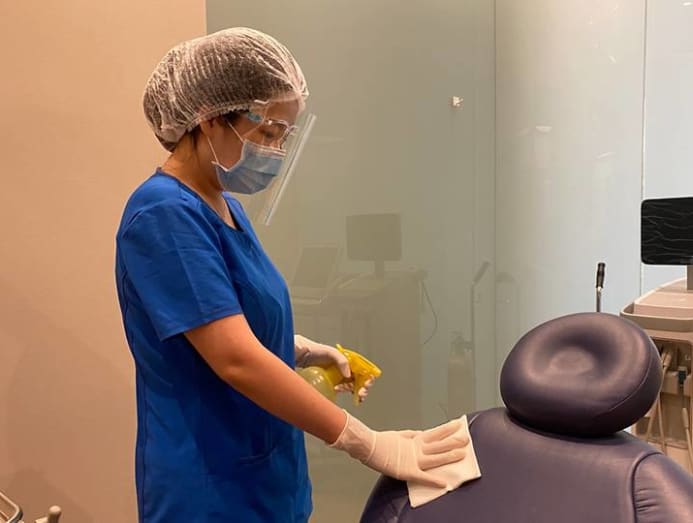
Additionally, firms like CapitaLand leveraged on the group’s digital platforms such as CapitaStar@Work and Capita3Eats, and harnessed tech innovations to support tenants in its properties.
Khiatani said, “We have also been piloting and deploying various technologies, including contactless solutions, facial recognition and UV disinfecting devices in our buildings. Additional services have been extended to our tenants such as provision of flexible and temporary workspaces and bulk purchase for essential items and services related to COVID-19.”
“We are confident that all the challenges notwithstanding, CapitaLand will emerge from COVID-19 even stronger than before,” he added.
Looking forward, Dr Soh said Prive Clinic will have reserves set aside to pay staff, overheads and rent should there be a global downturn. At the same time, it is looking into staying relevant to clients and ensuring their skin’s health needs are met amid a pandemic.
Dr Soh said adopting digital technologies is a critical aspect for business continuity. The team is also looking into personalised skincare and treatments to ensure longer-lasting results in the event of a second quarantine period.
“I’ve learnt that most companies need to urgently improve their agility, which is the ability to learn and to change course quickly,” she said.

With its crisis management plans in place and model for modern travel, Jolivet believes that COMO will continue to be relevant in the years to come, even though COVID-19 has caused ripple effects in international travel.
“Guests are more interested to travel with their ‘community’ to share an experience together or to look for something that will enrich themselves through discovery, wellness and wellbeing. Brands that will inspire guests to travels will continue to be successful and I do believe COMO is well positioned to remain successful in the years to come,” he said.





